This is a premium article for paid subscribers that covers the recent trend of declaring the rebirth of ‘maneuver warfare’ as product of the perceived “success” of the Ukrainian operation in Kursk. In the piece I refute these conclusions by explaining how maneuver warfare is in fact a misunderstood, and deliberately misleading, concept which uses outdated combat stereotypes from WWII and beyond in a disingenuous attempt to paper over shifting modern paradigms.
We utilize several sources including the latest Institute for the Study of War piece, as well as an article on ‘positional deadlock’ from the latest issue of one of Russia’s premier military journals, Армейский сборник, or Army Collection.
This report is another whoppingly descriptive ~6,800 words, of which I’ve left a small portion open to the public as a teaser for people to decide whether the topic’s premise interests them and is worth subscribing for.
Since the start of the Ukrainian Kursk offensive on August 6th, 2024, there have been innumerable claims from the pro-Ukrainian West heralding the rebirth of “maneuver warfare”. Several high-profile figures and publications declared that offensive warfare is back on the menu, as if Ukraine had finally solved the riddle of the modern positional stalemate which has vexed both sides for nearly the past two years.
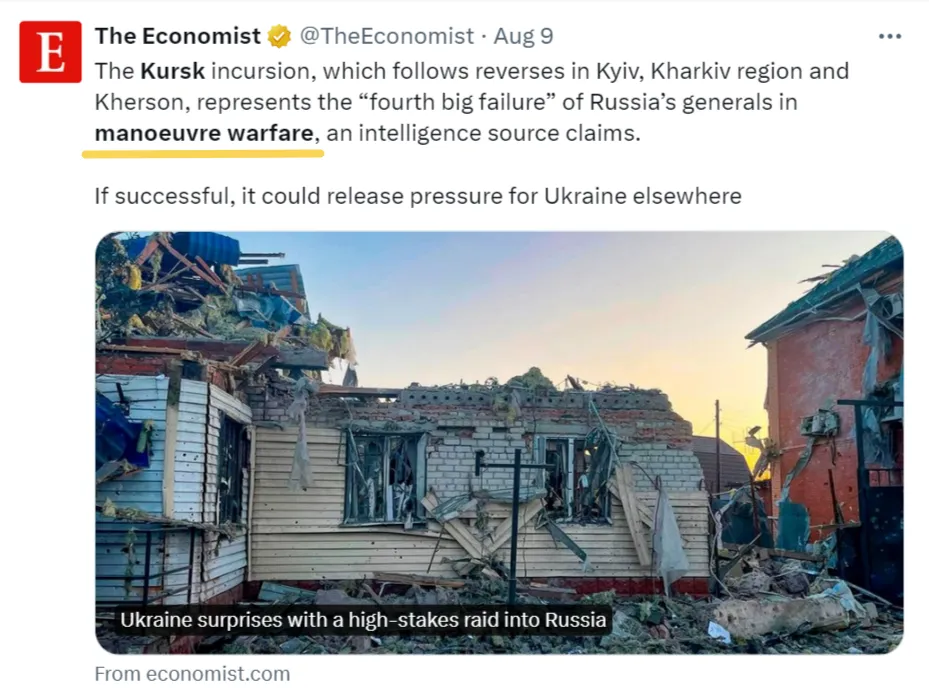
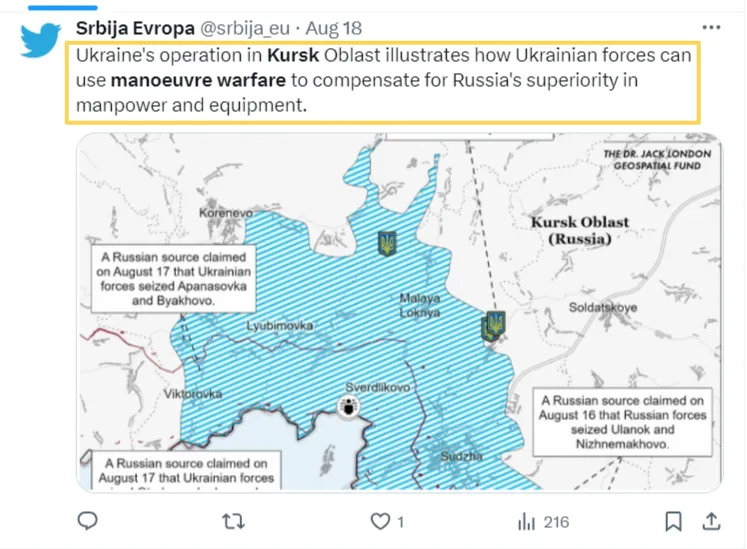
Many top pro-UA accounts quickly jumped on the bandwagon of branding this as the second coming of Maneuver Warfare™, falling over themselves to proclaim how Russia was not ready for such “dynamic” styles of superior “NATO” operations.
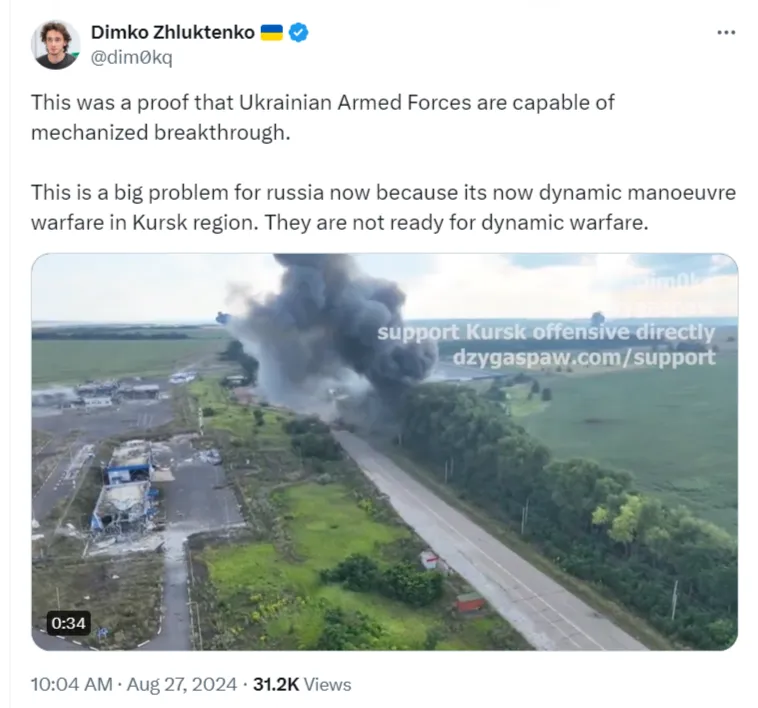
Adjacent to this was the triumphant claim that the dreaded “transparent battlefield” was again a thing of the past, as the groundbreaking AFU offensive was able to once again lower an opaque shroud over Russian ISR to create a tactical ‘surprise’, which was thought no longer possible under modern surveillance conditions.
Figures like Mick Ryan were quick to extol this achievement:
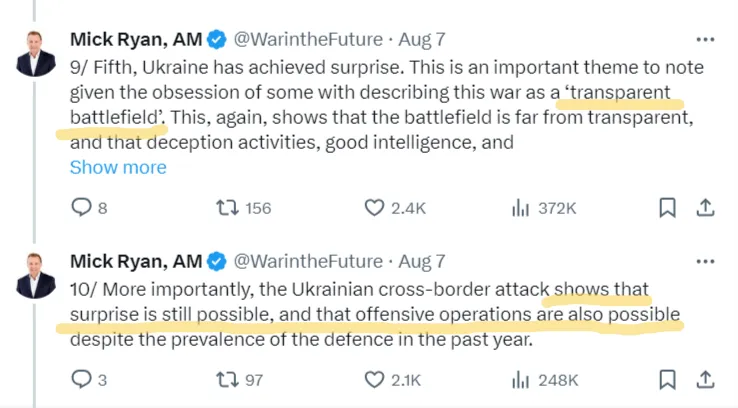
Most prominent of all was ISW which released a lengthy report on maneuver warfare several weeks after the Kursk op:
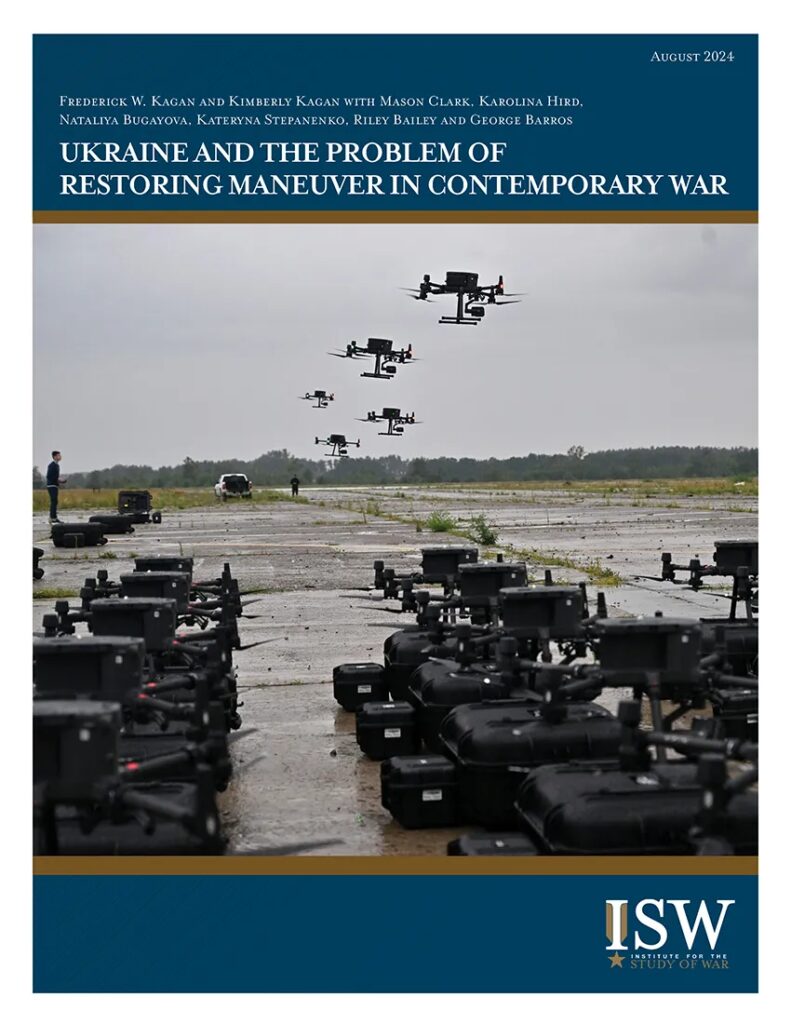
They claim that most of it was written prior to the initiation of the Kursk incursion, however, their accompanying social media truncations of the longer report credit the Kursk operation as emblematic of their points.
One of those larger points is that ISR is not impossible to overcome—which you can see they tied into the Kursk operation as evidence of their findings:
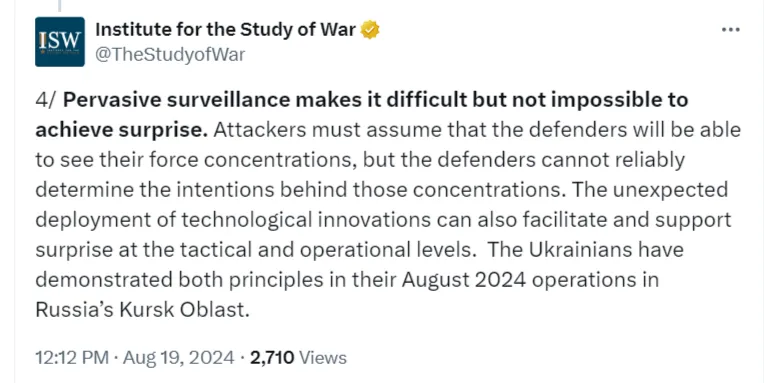
The problem is, virtually the entire concerted information front about ‘maneuver warfare’s’ return has been a propaganda wave aimed at selling us Ukrainian victory and superiority as a morale boost.
Several other keen observers precisely understood it for what it was:
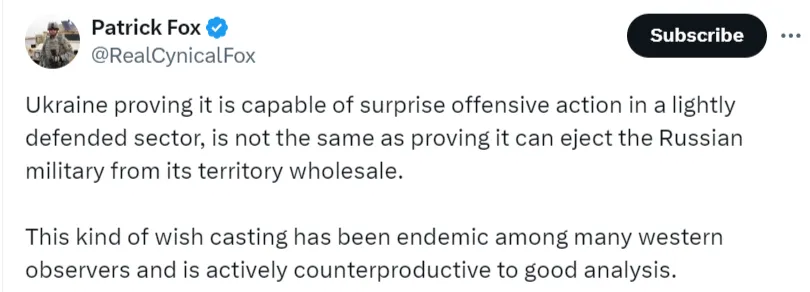
In short: Ukraine choosing a lightly guarded, strategically trivial rural border area to send a shock fist of their most elite brigades through against a bunch of unarmed conscripts is not the highpoint of “maneuver warfare”, and in no conceivable way heralds its return. Anyone can send a couple light cavalry battalions to go romping through an undefended countryside to temporary effect—but that is not at the heart of maneuver warfare’s basest definition.
The primary importance behind maneuver warfare in operational art revolves around defeating enemy armies. When you’re maneuvering around a place where no army even exists, you’re not really accomplishing much. If Ukraine had truly revived the art then it would have been able to effect this discipline against Russian reserves which subsequently arrived to dig in. But what happened? Ukrainian forces hit a wall and became quickly stalled by the slightest resistance from actual professional troops.
Anyone can “maneuver” around a small token complement of conscripts when they’re outnumbered five to one. The reason maneuver warfare was deemed dead on the main contact lines was because there, both sides are of comparable strength and armament—albeit sometimes asymmetrically.
With that out of the way, let’s take a look at a few recent pieces of literature to highlight this.
